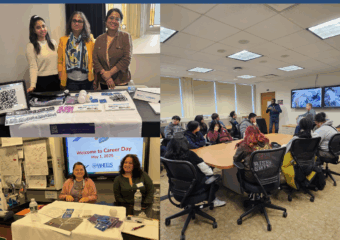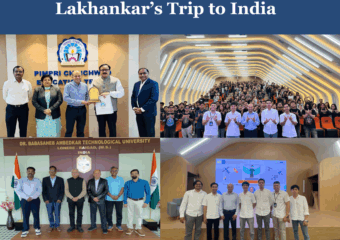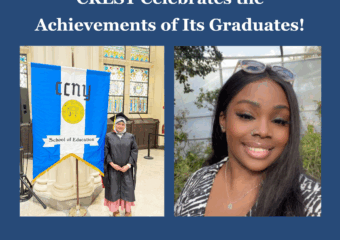Dr. Erin Friedman Publishes Two Research Articles in the Science Direct
CUNY CREST scientist, Dr. Erin Friedman published two research articles in the Science Direct that contribute to the broader field of climate justice by unpacking dominant discourses and political economic patterns that are shaping climate decision-making. These are titled:
- Constructing the Adaptation Economy: Climate Resilient Development and the Economization of Vulnerability published in the Science Direct’s Global Environmental Change.
- Climate-Changed Development: Organizing Climate Risk and Response through an Economic Growth Lens published in the Science Direct’s Current Opinion in Environmental Sustainability (COSUST)
The purpose of the article titled ‘Constructing the Adaptation Economy: Climate Resilient Development and the Economization of Vulnerability’ is to illustrate how policymakers across Caribbean small island developing states (SIDS) are approaching climate adaptation as an economic problem, and the ways this approach is maladaptive. Dr. Friedman added, “In this paper, I examine climate resilient development in Antigua to understand the integration of economic growth ideals into adaptation planning for watersheds.” The results of the article illustrate how the current iteration of climate resilient development focuses exclusively on adaptation projects that can produce returns on climate financing investment. In this way, policymakers sought to create an adaptation economy where vulnerability is framed as an investment opportunity. Further, Dr. Friedman said, “This has maladaptive affects because the underlying causes of vulnerability within watersheds are not addressed (e.g., removal of mangroves, unregulated coastal development, urbanization in flood-prone areas).”
The purpose of the article titled ‘Climate-Changed Development: Organizing Climate Risk and Response through an Economic Growth Lens’ is to examine how climate decision-making in the global South is becoming increasingly reliant on economic growth problem framings, which focus heavily on market-based solutions. This literature review illustrates the importance in understanding how policymakers attempt to meet economic growth demands while mitigating climate change costs. Commenting on the results, Dr. Friedman said, “I observe a climate-changed development that is organizing Global South approaches to climate risk. Through climate financing, development aid frameworks shifted from a top-down process to a country ownership process. National governments in the global South now play a significant role in directing these funds. But these funds’ structure climate resilient development in a way that encourages policymakers to construct profitable climate risk response. In particular, case studies show national governments have been undergoing extensive governmental and economic restructuring to expand the role of the private sector in climate decision-making.”
Elaborating on what motivated her to publish her research, Dr. Friedman said, “Much of this research is based on my dissertation work. My motivation to publish these findings was to comment on patterns of climate resilient development, and its effects on vulnerability. This is significant as the most recent IPCC AR6 report emphasized, climate resilient development is a way to pursue adaptation and mitigation in a way that is beneficial for all. I wanted to publish work that showed that this approach is currently in the early stages of construction, but it is continuing, in many ways, development-as-usual problems (e.g., reliance on outside finance and non-state actors in decision-making). Therefore, I wanted to shed light on the need for us to understand how policymakers are organizing their understandings of climate risk alongside economic development so we can investigate where and how to promote more just transitions for all.”
Dr. Friedman emphasizes, “Unpacking decision-making processes, and the political economic contexts in which they form in, is crucial to advancing climate justice approaches. For instance, many Caribbean SIDS are in a unique position where because they are upper-middle income/high-income countries, they are left out from much concessional financing support from development aid. So, the region is progressive in how it is approaching climate resilient development as an economic growth strategy. Focusing on the reason why policymakers make their decisions, we can understand who and what is being left out of the engagement process.”




